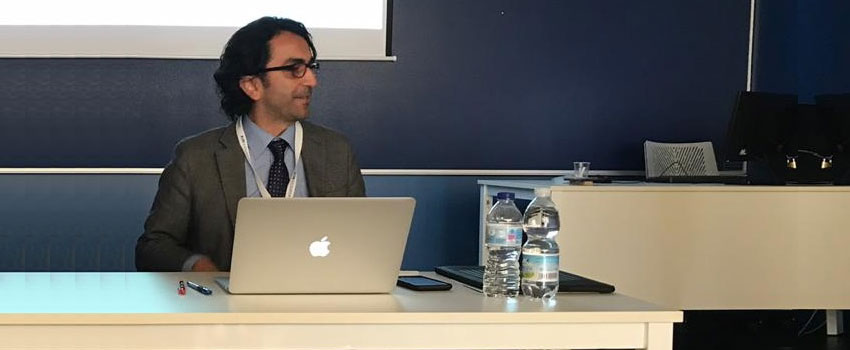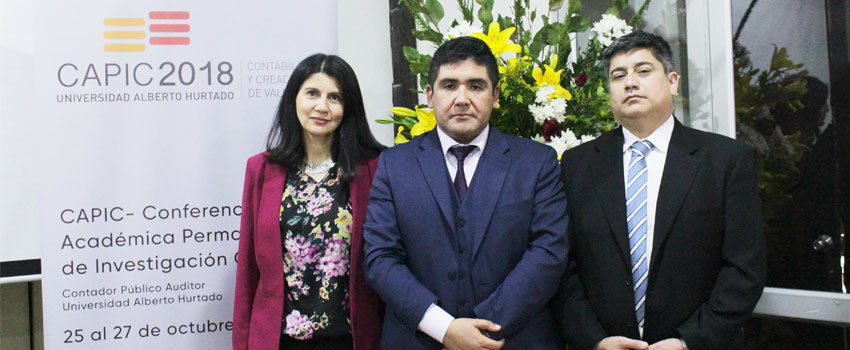
Representatives of the ULS Audit career presented the results of three investigations at CAPIC 2018.
At the Alberto Hurtado University (Santiago), the XXIX Academic Accounting Research Conference (CAPIC) took place from October 25 to 27, in which the academics of the Auditing career of the University of La Serena, Patricia Cortés Iturrieta, Cristian Blanco Alfaro, Romina Galleguillos Jaime and Christian Villegas Báez, participated with the results of their research.
One of the investigations presented was: “Variables that affect the remuneration of Audit graduates (2013-2015) University of La Serena”, a quantitative study that sought to determine the incidence of the variables, years of work experience, area of professional performance, sex, computer skills and social skills, in the remuneration of professionals graduated from the Audit career between the years 2013 to 2015. As a result of this research, it was concluded that the graduates with the longest year of work experience are the that they tend to be grouped in the middle and upper income brackets, that it is the Audit area that receives the highest remunerations, that it is men who receive salaries that are ostensibly higher than women, that computer skills do not have a direct impact on the salaries and that social skills have an impact on increasing the economic income of graduates.
The “Guide to active teaching-learning strategies to develop transversal skills in auditor students” was also presented. Through this educational innovation project, a guide to active teaching-learning strategies was generated to enhance transversal competencies in auditor students, focused on VIII level students of the 2017 degree program, and seeking to enhance transversal work competencies. as a team, autonomy and personal initiative, comprehensive reading and logical mathematical reasoning. This guide was implemented and subsequently evaluated, showing a notable improvement in the skills of teamwork and autonomy and personal initiative, in addition to a considerable improvement in the skills of reading comprehension and mathematical logical reasoning.
Another of the investigations was “MILA: regional challenge for the integration of securities markets”, a scientific essay that sought to describe the relevance that MILA acquires as a challenge for the integration of securities markets, highlighting both the varied benefits that it can generate this integration, such as the reduction in the cost of capital, the promotion of markets for its members, economies of scale and its contribution to the diversification process of its investors, as well as the challenges that must be overcome in order that allows it to be consolidated as a valid and serious alternative to be considered as an investment proposal.
CAPIC was founded in 1990, by representatives of the Audit career in Chile, with the purpose of promoting the development of accounting through research. It is currently made up of 26 Chilean universities and 5 foreign universities that teach the Auditing career (http://www.capic.cl).
It should be noted that the next CAPIC will be held at the University of Magdalena in Colombia, and later in 2020 it will be organized by the University of La Serena.


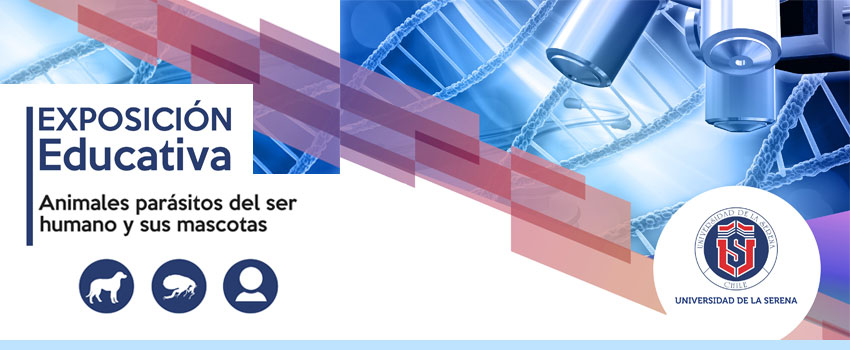
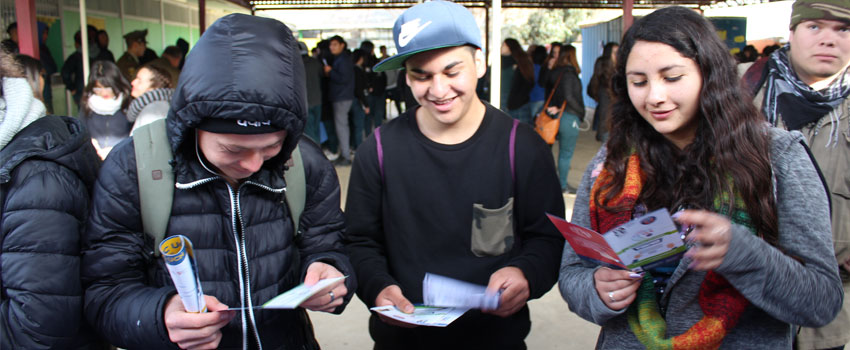
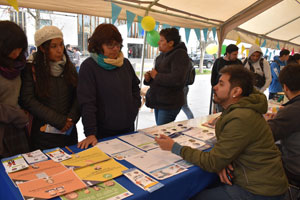 The purpose of the activities is to provide information about the careers taught by the higher education institution, as well as about the program and its objectives to the educational community.
The purpose of the activities is to provide information about the careers taught by the higher education institution, as well as about the program and its objectives to the educational community.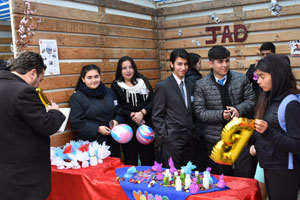 The PACE ULS Program participated in this activity with a workshop on careers and benefits led by the Program's social worker, Ricardo Carmona, who provided information about scholarships and benefits, in addition to talking about university life. “I think the effort made by the directors of each educational establishment is valuable, since it is complex for the different HEIs to reach places far from the large cities of our region, the main benefit being for students to receive valuable information for their future. In my case, I provided information about the benefits that students can access, through FUAS and the updating of the Social Registry of Households, and answered their questions regarding financing, differences between studying at a university and a Technical Training Center, among other doubts that arose in the talk,” he said.
The PACE ULS Program participated in this activity with a workshop on careers and benefits led by the Program's social worker, Ricardo Carmona, who provided information about scholarships and benefits, in addition to talking about university life. “I think the effort made by the directors of each educational establishment is valuable, since it is complex for the different HEIs to reach places far from the large cities of our region, the main benefit being for students to receive valuable information for their future. In my case, I provided information about the benefits that students can access, through FUAS and the updating of the Social Registry of Households, and answered their questions regarding financing, differences between studying at a university and a Technical Training Center, among other doubts that arose in the talk,” he said.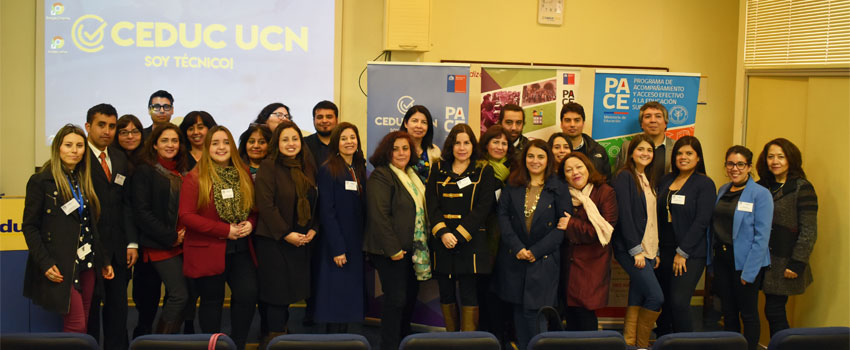
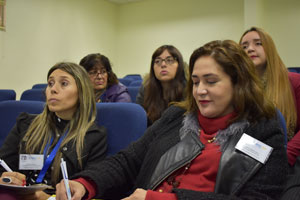 For the Secondary Education Preparation Coordinator of PACE ULS, Loreto Garrido, this meeting was beneficial, since it was possible to glimpse the work carried out by other institutions. “The idea of this day was basically to be able to share how we are working regarding the linking of our two work areas PEM and AES. Therefore, it is necessary to move forward as a PACE Program in articulating actions with the other HEI programs,” she expressed.
For the Secondary Education Preparation Coordinator of PACE ULS, Loreto Garrido, this meeting was beneficial, since it was possible to glimpse the work carried out by other institutions. “The idea of this day was basically to be able to share how we are working regarding the linking of our two work areas PEM and AES. Therefore, it is necessary to move forward as a PACE Program in articulating actions with the other HEI programs,” she expressed.